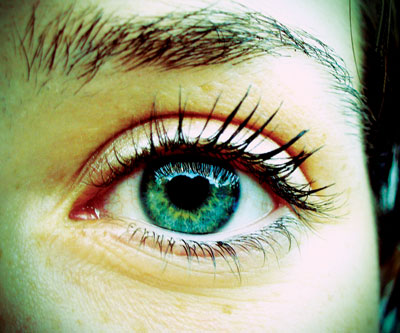All Nonfiction
- Bullying
- Books
- Academic
- Author Interviews
- Celebrity interviews
- College Articles
- College Essays
- Educator of the Year
- Heroes
- Interviews
- Memoir
- Personal Experience
- Sports
- Travel & Culture
All Opinions
- Bullying
- Current Events / Politics
- Discrimination
- Drugs / Alcohol / Smoking
- Entertainment / Celebrities
- Environment
- Love / Relationships
- Movies / Music / TV
- Pop Culture / Trends
- School / College
- Social Issues / Civics
- Spirituality / Religion
- Sports / Hobbies
All Hot Topics
- Bullying
- Community Service
- Environment
- Health
- Letters to the Editor
- Pride & Prejudice
- What Matters
- Back
Summer Guide
- Program Links
- Program Reviews
- Back
College Guide
- College Links
- College Reviews
- College Essays
- College Articles
- Back
Photoshop is Destroying Beauty Standards
There has been a widespread use of Photoshop in the media for more than twenty-five years. The images altered by Photoshop are more attractive and create a buzz in the media, motivating the media to use the computer program. It creates images with few resemblances of reality. The illusions Photoshop creates can have an immense impact on the way people think they should look. The use of Photoshop should be illegal in the media because it gives people unrealistic beauty standards.
When people experience exposure to unrealistic looking models with bodies manipulated by Photoshop, they may make the models their standard. This impossible standard could cause people to become envious of the models and develop unhealthy perceptions of themselves. First, an overexposure to fictitious looking models, produced by Photoshop, may cause a destruction of confidence. The issue has reached such a severe level that even the models themselves speak out against the outrageous overuse of Photoshop in the media. Zendaya, a model and actress, released a statement regarding a retouched photograph of her that expressed her concern about the issue. She stated, “ These are the things that make women self-conscious, that create the unrealistic ideals of beauty that we have”(CNN). All individuals should have confidence in themselves, but Photoshop’s work destroys the potential to maintain a strong sense of self-confidence. Confidence is like a one-of-a-kind prize that people hold close, and once taken away it is difficult to get back. Therefore, protecting people’s confidence against the dangers of Photoshop is extremely important. In addition, Photoshop causes young people to develop problems with their body image, which is “the way you see your body and how you feel about it” (Kowalski). For example, the child advocacy group Common Sense Media released a report stating, “Kids as young as age 5 are starting to develop concerns about body image” (CNN). The root of these issues may come from reading fashion magazines, which airbrush their models to remove any flaws, using Photoshop. While teenagers should read these magazines for entertainment purposes, instead they “feel worse about their bodies after reading fashion magazines” (Kowalski). Exposure of children and teens to models whose looks “often aren’t true to life” can lead to a collapse in body image at a young age (Kowalski). Lastly, the use of Photoshop in the media can cause people to question what constitutes beauty. Specifically, “the media are setting standards for how boys and girls should look, defining what is beautiful in our culture” (Kowalski). All boys and girls want to feel beautiful. Correct? However, when they are exposed to images of perfect plastic-like models comparison is impossible. Overall, the use of Photoshop in the media does severe damage to authentic beauty standards.
Contrary to the cogent evidence that illustrates the destructive effects of the use of Photoshop in the media and its effects on beauty standards, various critics demand that an outright ban on Photoshop in the media is too extreme. Admittedly, the use of Photoshop does not always cause harm, so less stringent regulations could be considered. However, when the use of Photoshop in the media does harm, the repercussions are severe. In addition to the aforementioned effects of Photoshop on beauty standards, and in turn on confidence and the constitution of beauty, Photoshop in the media can corrupt beauty standards so much that eating disorders emerge. A well known underlying cause of many eating disorders is due to “An increase in access to global media and technological advances such as Photoshop and airbrushing” that “have further skewed our perception of attainable beauty standards” (What Causes an Eating Disorder?). Eating disorders carry a lifetime of suffering and sometimes death. Will children continue to suffer from eating disorders at the mercy of Photoshop? The use of Photoshop in the media should be illegal in order to protect the health and psychological well-being of society.
People possess unrealistic beauty standards when exposed to images manipulated by Photoshop. These unrealistic beauty standards have detrimental effects on the psychological health of all of society. Therefore, Photoshop should be illegal in the media. Attainable, realistic. These are the characteristics of beauty standards that should exist, and whose existence Photoshop prohibits.

Similar Articles
JOIN THE DISCUSSION
This article has 0 comments.
